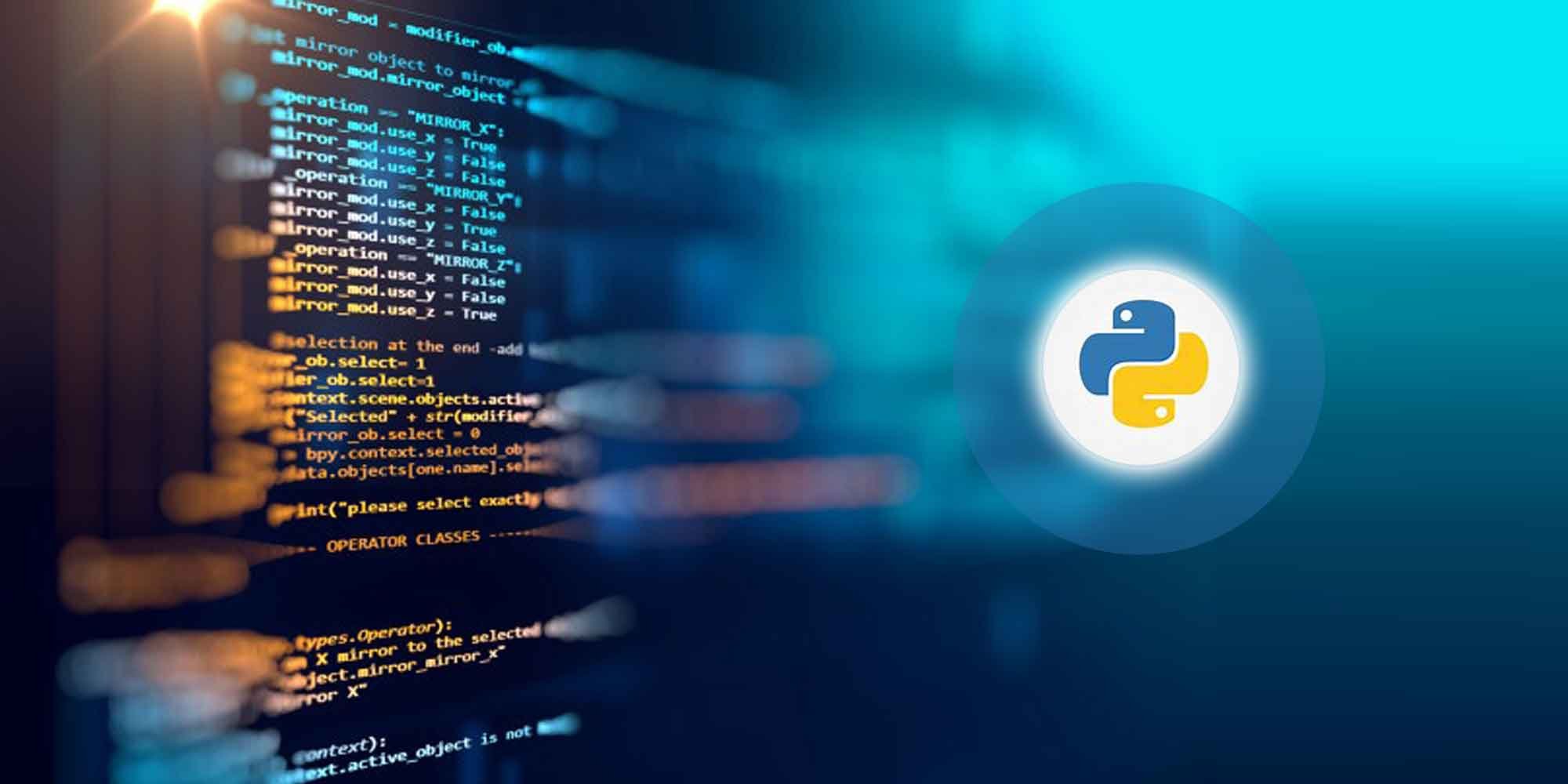Python Training in Singapore
Learn Virtually Anywhere. Get Started Python Online Training Now!

Course Features
Expert Instructors
Real-Time Projects
Verified Certificate
100% Placement
An Award Winning Company





About Program
Course Description
Take your skills to the next level with courses on the most popular programming languages Python. As the adoption of open source continues to rise, the demand for Python coding skills will also continue to grow. Learn one of today’s most popular programming languages from our technical experts, whether you’re new to using Python or want to learn more specific advanced functionalities of Python.
Prerequisites:
- Familiarity with basic computer operations and file management.
- Understanding of programming fundamentals.
- Understanding of Python syntax and basic constructs like variables, loops, and functions.
- Basic arithmetic and logic skills.
- Ability to install Python and an IDE (e.g., PyCharm, VSCode).
Target Audience:
- Beginners in programming
- Students in computer science or related fields
- Professionals in IT, engineering, finance, or science
- Career changers or switchers
- Self-taught learners
Sign Up Now!
Course Details
BASICS CONCEPTS
- Importance of PYTHONPATH and PATH Variable
- Concepts of Compiler, Interpreter difference between them
- Properties of python
- version Difference
- Declaration
- Initialization
- Swapping
- Indirect referencing
- type identification
- Syntax
- Indentation
- Arithmatic Operators [ + , – , * , / , % , // , ** ]
- Comparision Operators [ > , < , >= , <= , == , != ]
- Logical Operators [ and , or , not ]
- Assignment Operators [ += , -= , *= , /= ]
- Membership Operators [ in , not in ]
- terenary Operators
- print , input , int , float , type , str functions
- if statement and its examples
- if-else statement
- Indentation and structure of the conditional statements.
- nested if, nested if-else
- if-elif-else and its importance
PYTHON DATA TYPES AND SYSTEM DEFINED FUNCTIONS
This section of python comprises of the system related concepts like data types, system-defined functions with practical implementations. System Module concept. how to import the system defined modules and its uses.
- Python Data types like Numbers , Strings , Lists , Tuples , Dictionaries etc
- difference between Normal and module function eg math , random.
Number functions: The functions which works on the number inputs are number functions. This section also comprise system defined number functions .
- abs , max , min
- math.ceil , math.floor , round,
- random functions lile : choice , shuffle , randrange , uniform
String Functions and string Operators:
- string operators like + , * , [] , [:] , in , not in
- case related functions like capitalize , upper , lower , title , swapcase
- max , min , len
- ljust , rjust , center , lstrip , rstrip , strip
- count , index , find , replace
- split , join , startswith , endswith , reversed , sorted
- validation functions like isalpha , isdigit , isalnum , isupper , islower
- practical implementations with files using lists.
- List operators + , * , [] , [:] , in , not in
- List fundtions like len , max , min
- append , extend , index , insert , pop
- deep copy and shallow copy
- remove , sort , reverse
- map , reduce , filter
- tuple operators + , * , [] , [:] , in , not in
- difference between list and tuple
- tuple functions len , max , min , copy
- map , reduce , filter
- Difference between list and dictionary
- dictionary operators like [] , in , not in
- dictionary functions like len , keys , values , items ,
- get , fromkeys , setdefault
USER-DEFINED CONCEPTS
In the above section 2, we seen every function or module used is system defined. This section mainly focuses on user-defined elements like user-defined functions, types of user-defined functions and its importance. Return statement. user-defined modules how can user-defined modules are imported etc.
Exception Handling: This section consists of handilng the exceptiexceptions its importance. assert statement.
- try , except block
- System defined exceotions
- User defined exception
- assert statement
- finally block
- file handlers
- file functions like open , read , readline , readlines , write , writeline , writelines , close , seek , tell
- file modes like r, w, a, r+, w+, a+, rb, wb, ab
- difference between user defined and system defined functions
- types of user defined functions like
- Required and positional arguments
- required and nonpositional Keyword arguments
- default arguments
- Variable-length arguments
user-defined modules: This section includes Importance of the user defined modules , use of __init__.py file.Also how to create a module using folder and also using the files. difference between import and from keywords.
- import statement
- from statement
- difference between import and from statement
- importance of __init__.py file
- alias naming in python
- Importing one python script in another
ADVANCED CONCEPTS
OOPS: OOPS whose abbrevation is object oriented programming system. This section deals with the real time programming examples .Importance of objects , object methods , class methods difference between them . Importance of self keyword.
- Class sstructure
- importance of objects
- class methods and object methods
- Importance of self , __init__ , __name__ , __dict__, __str__ .
- importance of hasattr(), type(), issubclass(), isinstance(), super() functions
- class Variables and static variables
- pattern acchors
- functions like match , search , findall , sub , compile
Excel Files: This section deals with using openpyxl module for excel file related tasks such.
- How to open excel file in Read and Write and append mode
- difference between load_module and module function
- create excel file and add data dynamically in excel file
- Read existing file and append data
- Read data dynamically from excel file
- max_row , max_column and sheetnames functions
- Use of the Mysql database
- How to connect to the database using the connect method
- functions like cursor , execute , fetch , fetchall , close and its importance.
- control functions such as db.commit and db.rollback and its importance
- how to eexecute the query in python and fetch the data.
Iterators: This section deals with the handling of the memory with respect to the variables.
- Importance of iterators
- list and tuple iterator
- String Iterator
- next() function and its importance in iterators
Generators :
- differnce between yield and return statement
- use and importance of the yield over return statement
Decorators :
- What is decorator
- importance and use of decorators
- JSON , YAML File concepts
- PDF , Word , CSV , Excel Files [ Opening , Closing , DataExtraction , Creation ]
Threading: This section deals with the concept of threads which is called as parallel processing.
- what is threading and its importance
- functions like Thread , join , start
- threading.main_thread()
- threading.current_thread()
- synchronus and asynchronus threads
- Synchronization between threads
- lock.acquire() and lock.release()
- threading.Lock()
smtplib Module: This module is responsible for sending emails
- how top send the text email
- how to send the HTML email
- adding attachments in the mail
- functions like SMTP , sendmail , quit() , MIMETEXT
OS Networking module: This module contains the functions which are used to perform operating system related tasks.
- importing os module
- functions in os module like : access() , listdir() , mkdir() , makedirs() , rmdir() , removedirs()
- file functions such as remove() , rename() , copy() , chmod() , stat()
- link() , symlink() , readlink()
- environ , getenv() , setenv()
- Webpage Automation
- screen scraping
- web interface automation
Learning Objectives:
- Mastering Python's basic syntax, data types, and control structures.
- Developing skills in problem-solving and debugging using Python.
- Learning to build practical applications using Python frameworks and libraries.
- Understanding coding best practices, version control with Git, and effective project collaboration.
- Acquiring skills in data manipulation, analysis, and visualization using Python libraries like pandas and matplotlib.
Testimonials
I have done a Python and Jango course in mytectra. myTectra helped me to clear his all doubt with real-time examples. myTectra helped me so much which helped me to be placed in good MNCs. myTecra helped to clear all his doubts.
Siddu
Python developer
I did the Python & Django course in myTectra. myTectra also gave me the opportunity to work on a real-time project which helped me a lot to get my concept throw. They also provided me the placement in the company for the course I did in mytectra.
Prinjal
Python
I have a good learning experience with myTectra learning solutions and I took Python training under Santosh sir. He teaches both practical and theoretical concepts with live examples, which greatly enhances understanding.
Sai Nagendra
Python
I did Machine Learning(ML), Artificial intelligence(AI), and python courses under the trainer Niraj in mytectra. Due to the standards of the teachings and learning environment of myTectra it made wonders for my future.
Harish Kumar
AI, Ml & Python
Reviews
FAQ's
What is Python training, and why should I learn it?
Python training is a program or course designed to teach individuals how to code in Python, a high-level programming language that is popular among developers, data scientists, and artificial intelligence professionals. Learning Python can help you build a career in tech, develop your own applications, or automate your work processes
What are the benefits of taking Python training online?
Online Python training offers several benefits, including flexibility in scheduling, access to a wider range of trainers and courses, and the ability to learn at your own pace. Online training can also be more cost-effective than in-person training.
Will I get placement assistance?
myTectra is providing 100% placement assistance on our key courses. We help you with the career counselling, Exams on Key courses, Mock Interviews and Technical Interviews Tips. Landing an interview proves that you have the job-specific skills for the position, but how do your interview skills stack up? Also, Soft skills are often the most important factor in showing you're the best candidate for the job. Hence we are conducting FREE TRAINING on Soft-Skills worth Rs-25, 000 to all myTectra students which will help you to attend the interviews with more confidence.
Can I attend a demo session before enrollment?
Yes. We arrange a free demo for all the courses either in the Classroom or Live-Online demo. Please fill the demo request form below to schedule a free demo.
What if I miss a class?
You will never miss a lecture at myTectra. You can choose either of the two options:
Classroom Training:
- If you miss one or few classes we can give a backup class based on trainer and your convenient time.
- In case if you miss many classes, we can reschedule your class with upcoming batches or other running batches based on how many courses topics you have completed so far.
Live-Online Training:
- View the recorded session of the class available in your LMS.
- You can attend the missed session, in any other live batch.
What are the payment options?
- Visa Debit/Credit Card
- American Express and Diners Club Card
- Master Card
- PayPal
- Net Banking/Wire Transfer
- UPI Payment such as Google Pay, PhonePe, Paytm
- Cash/Cheque/DD ( Not for Online Training )
Where do the classes take place?
Classroom Training - Bangalore
Live-Online Training - Globally
For Corporates:
Classroom Training - We deliver classroom training for corporate in more than 20 countries. Send us an Enquiry Now!
Online Training - Globally
* All of the classes are conducted live online. They are interactive sessions that enable you to ask questions and participate in discussions during class time. We do, however, provide recordings of each session you attend for your future reference.
Who are the Trainers?
Our Trainer’s are chosen not only for their knowledge and expertise but also for their real-time experience in the respective courses.
What if I have more queries?
Just give us a CALL at +918047112411 OR email at support@mytectra.com
Related Blogs
7 Reasons You Should Learn Python Now
Python is a favorite among developers for its emphasis on readability and efficiency, especially when compared to other languages like Java...
Python Developer Skills | Python Career Opportunities
First you should know what is python? who developed it? And what are all skills required/available in python developer ?...
Will Python Replace Java?
According to the IT programming trend, Java is currently more popular than other programming languages in terms of number of jobs...
Read More →



